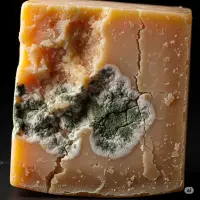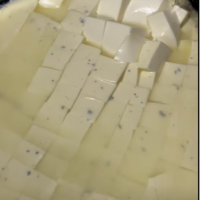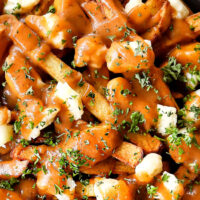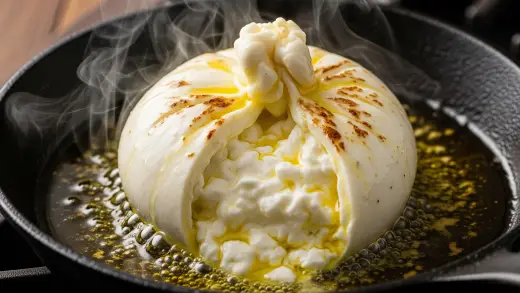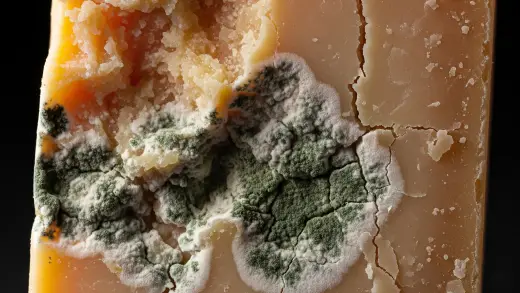Yes, you can eat ricotta cheese raw. Ricotta cheese is safe to consume without cooking.
Introduction on Can You Eat Ricotta Cheese Raw
Ricotta cheese is a creamy Italian cheese made from whey. It has a mild flavor and a smooth texture, making it a versatile ingredient in both sweet and savory dishes. Many people enjoy eating ricotta cheese raw as a spread on toast, a filling in pastries, or as a topping for fruits.
It can also be used in appetizers, salads, and desserts. Rich in protein and calcium, ricotta cheese is a nutritious addition to any diet.
However, it is important to ensure that the ricotta cheese is fresh and of good quality before consuming it raw to avoid any potential health risks. Overall, ricotta cheese can be enjoyed raw in a variety of dishes and is a delicious addition to your culinary creations.

credit: Youtube.com
Understanding Raw Ricotta Cheese
Ricotta cheese is a versatile and creamy dairy product that has a delicate flavor and soft texture. It is commonly used in both sweet and savory dishes, making it a staple in many kitchens. Understanding raw ricotta cheese is essential for anyone who enjoys cooking and experimenting with different types of cheese.
Definition And Origin Of Ricotta Cheese
Ricotta cheese is an Italian whey cheese made from the leftover whey from the production of other cheeses. Its name, “ricotta,” translates to “recooked” in Italian, which refers to the process of reheating the whey to create the cheese. Dating back to ancient times, ricotta has been a staple in Italian cuisine and is now celebrated worldwide for its unique flavor and versatility.
Comparison To Other Cheeses
Unlike most cheeses, ricotta is not made from curd but rather from whey, resulting in its creamy and slightly grainy texture. This sets it apart from traditional cheeses like cheddar or mozzarella, making ricotta a distinct choice for both cooking and snacking.
Common Uses In Cooking And Baking
Ricotta cheese is a popular ingredient in Italian dishes such as lasagna, ravioli, and cannoli, adding a creamy and rich element to these classic recipes. Beyond Italian cuisine, ricotta is also commonly used in cheesecakes, pancakes, and even as a spread on toast. Its mild flavor and creamy texture make it a versatile addition to both sweet and savory dishes.
Can You Eat Ricotta Cheese Raw
When it comes to ricotta cheese, many people wonder, “Can you eat ricotta cheese raw?” It’s a valid question, especially considering the versatile nature of this creamy, slightly sweet cheese. Let’s delve into the topic to understand the safety considerations, potential benefits, and cultural practices surrounding the consumption of raw ricotta cheese.
Safety Of Unpasteurized Vs. Pasteurized Ricotta
When it comes to the safety of consuming ricotta cheese in its raw form, it’s important to consider whether the cheese is made from pasteurized or unpasteurized milk. Pasteurized ricotta cheese has undergone a process that kills harmful bacteria, making it generally safe to consume without cooking. On the other hand, consuming unpasteurized ricotta cheese raw may pose a higher risk of foodborne illness due to the potential presence of pathogens.
Potential Benefits Of Consuming Ricotta Without Cooking
Consuming raw ricotta cheese may offer potential benefits, as the heating process during cooking can destroy certain enzymes and nutrients present in the cheese. Some individuals believe that consuming raw ricotta may preserve these nutrients, potentially enhancing its nutritional value. However, it’s essential to weigh these potential benefits against the associated safety risks.
Cultural Practices Involving Raw Ricotta Consumption
In various culinary traditions, raw ricotta consumption is a common practice. For instance, in Italian cuisine, raw ricotta is often used in dishes like cannoli and as a topping for bruschetta. Understanding these cultural practices can provide insights into the safe and enjoyable ways to consume raw ricotta while appreciating its traditional significance.

Credit: Youtube.com
Nutritional Profile Of Raw Ricotta
The nutritional profile of raw ricotta cheese is a topic of interest for those who want to understand the health benefits of this creamy cheese. Ricotta cheese is a versatile ingredient and is often used in both sweet and savory dishes. To determine if ricotta cheese can be eaten raw, it’s important to analyze its nutritional value.
Key Nutrients Found In Ricotta Cheese
Ricotta cheese offers a range of essential nutrients that contribute to a balanced diet. From protein to calcium, here are some key nutrients found in raw ricotta:
- Protein
- Calcium
- Vitamin A
- Vitamin B12
- Phosphorus
Caloric Content And Macro Breakdown
One of the benefits of consuming raw ricotta cheese is its relatively low caloric content compared to other cheeses. Below is the macronutrient breakdown in a typical serving of raw ricotta:
| Component | Amount per Serving |
|---|---|
| Calories | 110 |
| Protein | 7g |
| Fat | 8g |
| Carbohydrates | 3g |
Vitamins And Minerals Present
Raw ricotta cheese contains a variety of vitamins and minerals that are essential for overall health and well-being. Some of the key vitamins and minerals present in raw ricotta include:
- Calcium for bone health
- Vitamin A for vision and immune function
- Vitamin B12 for nerve function and energy production
- Phosphorus for bone and teeth health
Health Benefits Explained
Ricotta cheese is a versatile and delicious ingredient that can be used in both sweet and savory dishes. Not only does it have a creamy texture and mild flavor, but it also offers several health benefits. In this section, we will explore the health benefits of consuming ricotta cheese, from its calcium content for bone health to its high-quality protein for muscle repair and growth, as well as its whey content for digestive advantages.
Boosting Bone Health With Calcium Intake
Ricotta cheese is a rich source of calcium, a mineral vital for maintaining bone health. Consumption of calcium-rich foods like ricotta can help in preventing osteoporosis and promoting strong and healthy bones.
Muscle Repair And Growth With High-quality Protein
Ricotta cheese is packed with high-quality protein, containing all essential amino acids necessary for muscle repair and growth. Adding ricotta to your diet can be beneficial for individuals looking to improve their muscle strength and overall physical performance.
Digestive Advantages Due To Whey Content
Ricotta cheese contains whey, a protein that offers several digestive benefits. Whey helps in the breakdown and absorption of nutrients, promoting a healthy digestive system. Including ricotta cheese in your diet can contribute to better digestion and nutrient utilization.

Credit: Youtube.com
Risks Of Eating Ricotta Cheese Raw
When it comes to consuming ricotta cheese, many people wonder whether it is safe to eat it raw. While ricotta cheese is commonly used in both sweet and savory dishes, some may be concerned about the potential risks associated with consuming it uncooked. Understanding the potential dangers can help individuals make informed decisions about their dietary choices.
Bacterial Contamination Concerns
Raw ricotta cheese may harbor harmful bacteria such as listeria, salmonella, or E. coli. These pathogens can cause severe foodborne illnesses, particularly in individuals with weakened immune systems, children, and pregnant women. Proper pasteurization and storage can significantly reduce the risk of bacterial contamination in ricotta cheese.
Lactose Intolerance Considerations
Individuals with lactose intolerance should be cautious when consuming raw ricotta cheese, as it contains lactose, a type of milk sugar. While some lactose-intolerant individuals may tolerate small amounts of ricotta, it is essential to be aware of potential digestive discomfort and to consider consuming lactase supplements if needed.
Allergic Reactions And Casein Sensitivity
Some individuals may experience allergic reactions to ricotta cheese, particularly those with milk allergies or sensitivity to casein, a protein found in dairy products. Symptoms of allergic reactions can range from mild to severe, making it crucial for those with known allergies to avoid consuming raw ricotta cheese.
Best Practices For Raw Ricotta Usage
Ricotta cheese is a versatile ingredient that can be enjoyed in various ways. If you’re wondering if you can eat ricotta cheese raw, the answer is yes! However, there are certain best practices to keep in mind to ensure the safety and quality of the raw ricotta usage. Here are some essential guidelines to follow:
Selection Of High-quality, Safe Ricotta Cheese
When incorporating raw ricotta into your diet, it’s crucial to select high-quality, safe ricotta cheese to minimize the risk of foodborne illnesses. Look for ricotta cheese that is made from pasteurized milk, as this process helps eliminate harmful bacteria and pathogens.
Storage Tips To Maintain Freshness
Proper storage is key to maintaining the freshness and flavor of raw ricotta cheese. Store it in the refrigerator at a temperature between 35-40°F (1.6-4.4°C) to prevent spoilage. Additionally, keep the ricotta cheese in its original packaging or an airtight container to avoid exposure to other odors and moisture.
Creative Ways To Include Raw Ricotta In The Diet
There are numerous creative ways to incorporate raw ricotta into your diet. From using it as a spread on toast to adding it to pasta dishes and salads, the possibilities are endless. Consider mixing raw ricotta with honey and fresh fruit for a delightful dessert or using it as a filling for homemade ravioli.
By following these best practices for raw ricotta usage, you can savor the rich, creamy goodness of ricotta cheese while ensuring the safety and quality of your culinary creations.
Integrating Raw Ricotta In Meals
Breakfast Options With Raw Ricotta Cheese
Start your day on a high note by incorporating raw ricotta into your breakfast routine. With its creamy texture and mild flavor, raw ricotta is a versatile addition to many morning dishes. Consider enhancing your breakfast options with:
- Ricotta and fruit parfaits
- Ricotta-stuffed crepes or pancakes
- Ricotta toast with honey and berries
Incorporating Raw Ricotta In Snacks And Desserts
When it comes to snacks and desserts, raw ricotta can elevate the flavor and texture of your sweet treats. Try these delicious ideas:
- Ricotta-stuffed strawberries
- Ricotta and honey drizzled over crackers
- Ricotta-filled pastries or cannoli
Savory Dishes Elevated By Raw Ricotta’s Texture
Raw ricotta’s creamy consistency can bring a delightful touch to savory dishes. Consider the following options:
- Ricotta-stuffed pasta shells or ravioli
- Ricotta and pesto pizza topping
- Ricotta and herb spread for sandwiches and wraps
Addressing Raw Ricotta Myths
Ricotta cheese is a versatile ingredient that can be used in both sweet and savory dishes. However, there are many misconceptions surrounding whether it is safe to consume raw ricotta. In this section, we will debunk common misconceptions, clarify the difference between fresh and spoiled ricotta, and provide educational resources for further inquiry.
Debunking Common Misconceptions
One common myth about raw ricotta cheese is that it is unsafe to eat. In reality, high-quality ricotta made from pasteurized milk is perfectly safe to consume without cooking. This misconception often stems from confusion with other unpasteurized cheeses, which can pose health risks if consumed raw. It’s essential to distinguish between different types of cheeses and their safety profiles.
Clarifying The Difference Between Fresh And Spoiled Ricotta
Another misconception is the confusion between fresh and spoiled ricotta. Fresh ricotta has a creamy texture, mild flavor, and a slightly sweet undertone. On the other hand, spoiled ricotta will have an off odor, mold growth, or a sour taste. It’s crucial for consumers to learn to identify the signs of spoilage to ensure they are consuming fresh and safe ricotta cheese.
Educational Resources For Further Inquiry
For those looking to delve deeper into the topic of raw ricotta consumption, there are various educational resources available. Websites such as the Food and Drug Administration (FDA) and the Center for Disease Control and Prevention (CDC) offer valuable information on cheese safety and handling. Additionally, local health departments and cheese-making workshops can provide hands-on education about the production and consumption of ricotta cheese.
Frequently Asked Questions On Can You Eat Ricotta Cheese Raw
Is It Safe To Eat Ricotta Cheese Raw?
Yes, it is safe to eat ricotta cheese raw as it is a pasteurized dairy product.
Can You Use Uncooked Ricotta Cheese In Recipes?
Yes, you can use uncooked ricotta cheese in various recipes that call for it.
What Are The Risks Of Consuming Uncooked Ricotta Cheese?
There are minimal risks associated with consuming uncooked ricotta cheese due to its pasteurization process.
How Can Raw Ricotta Cheese Be Included In A Diet?
Raw ricotta cheese can be used in salads, spreads, pastas, and desserts.
Is Raw Ricotta Cheese Suitable For Individuals With Lactose Intolerance?
Raw ricotta cheese may be better tolerated by individuals with lactose intolerance due to lower lactose levels.
What Are The Nutritional Benefits Of Raw Ricotta Cheese?
Raw ricotta cheese is a good source of protein, calcium, and essential nutrients like vitamin A.
Are There Any Specific Health Concerns Related To Consuming Raw Ricotta Cheese?
Consuming raw ricotta cheese should not pose any significant health concerns for most individuals.
Can Raw Ricotta Cheese Be Frozen For Later Use?
Yes, raw ricotta cheese can be frozen to prolong its shelf life for later use.
What Are The Recommended Serving Suggestions For Raw Ricotta Cheese?
Raw ricotta cheese can be served as a spread, topping, or filling for various dishes.
Conclusion
You can safely enjoy ricotta cheese raw in moderation. It is a creamy and versatile ingredient that can elevate the taste of various dishes. Just make sure it is fresh and well-handled to avoid any potential health risks. Whether as a spread, topping, or filling, raw ricotta cheese can be a delicious addition to your culinary repertoire.






